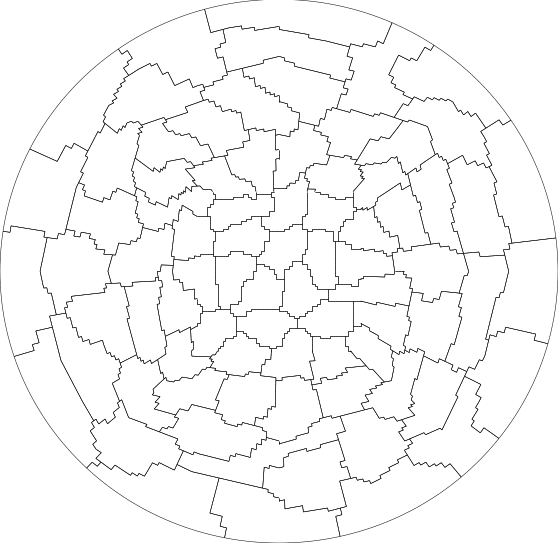PolyDEAL is an open source library which aims to provide building blocks for the developement of Polytopal Discontinuous Galerkin methods, using the Finite Element library deal.II in 2D and 3D. It is written in C++ using the C++17 standard. The parallel implementation builds on top of the Message Passing Interface (MPI) communication model.
We require:
- cmake version greater than 2.8.
- One of the following compilers:
- gcc version >= 9.4.0
- clang version >= 15
- icc (Intel compiler) 2021.2
- openMPI version >= 4.0.3
- deal.II version >= 9.5
The library polyDEAL employs deal.II as main third-party library. As deal.II itself depends on other external libraries for many functionalities, we strongly suggest to download and install deal.II following the instructions available at https://www.dealii.org/download.html and https://www.dealii.org/developer/readme.html. The minimal set of other external libraries that we require are: METIS, p4est, Trilinos. All of them should be compiled against MPI during the installation phase of deal.II.
While METIS is generally used to partition a triangulation among several processors, in the context of polytopal methods it is heavily employed as an agglomeration strategy to build polytopic elements out of fine grids composed by standard shapes. Trilinos (in particular its multilevel solvers and distributed matrices) is employed as main parallel linear algebra library. We also support novel agglomeration strategies based on the R-tree spatial data structure. The associated preprint can be found online on arXiv.
To enable to computation of some quality metrics, mostly of theoretical interests and not really relevant in application codes, the external library CGAL is required. As this is a dependency of deal.II as well, it is sufficient to configure deal.II with it.
We currently support the following features:
- Unified interface for 2D and 3D problems.
- Distributed-memory implementation through MPI.
- Discontinuous Galerkin spaces of order
$p$ . - Different agglomeration strategies.
- Multigrid support (still experimental)
Assuming deal.II is installed on your machine and meets the requirements above, all is required to do is:
git clone [email protected]:fdrmrc/Polydeal.git
cd Polydeal/
mkdir build
cd build/
cmake -DDEAL_II_DIR=/path/to/deal.II ..
make -j<N>being N is the number of jobs you want to use to compile.
Polygonal or polyhedral grids are generated through agglomeration. To give an easy example in 2D, here's a polygonal grid associated to the unit ball on which you can define a Discontinous Galerkin space. The 3D case is completely analougous.
The (discontinuous) Finite Element space is defined on the bounding box of each agglomerate. In order to visualize the solution, carry out convergence tests, and other post-processing issues, the solution computed on the polytopal grid is interpolated onto the underlying fine mesh composed of classical quadrilaterals or hexahedra.
Some example applications are shown in the examples/ directory. To build and run one of the examples, say diffusion_reaction.cc, it is sufficient the following:
// assume you have a build generated as above
cd build/examples
make
mpirun -np<N> ./diffusion_reactionwhere N is the number of processors you want to use.
A Doxygen generated documentation is built and deployed at each merge to the main branch. You can find the latest documentation here: https://fdrmrc.github.io/Polydeal/.
This project is developed and maintained by:
- Marco Feder (@fdrmrc), SISSA, IT
under the supervision of
- Prof. Andrea Cangiani (@andreacangiani), SISSA, IT
- Prof. Luca Heltai (@luca-heltai), University of Pisa, IT
Feel free to start a discussion or open an issue, especially if you want to contribute. For any other inquiries or special requests, you can directly contact [email protected].

